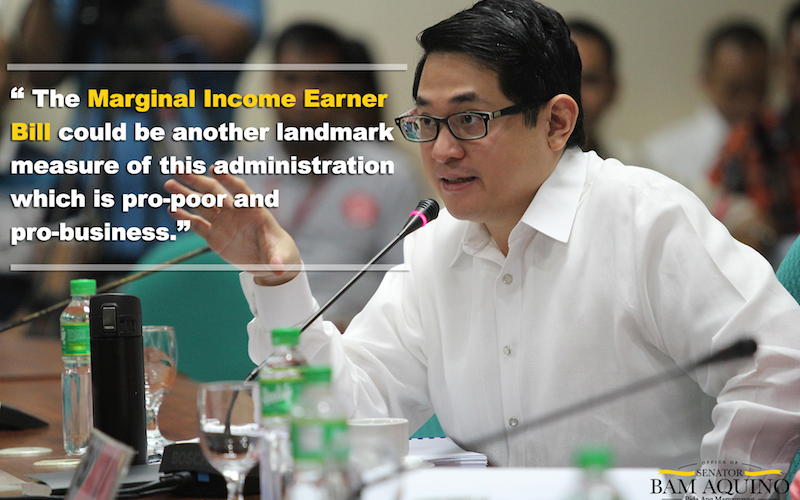Bam eyes tax exemption for communities affected by calamities
Business establishments and communities affected by calamities will be exempted from paying taxes once a measure submitted by Sen. Bam Aquino becomes a law.
“This measure seeks to relieve Filipinos of some taxes to encourage recovery after disaster,” said Sen. Bam as he filed Senate Bill No. 653 or “An Act Providing for Tax Relief in Times of Calamity”.
The measure mandates real property tax exemption for affected communities after a declaration of a state of calamity.
In addition, Sen. Bam said business establishments affected by a calamity shall be exempted from income tax payments.
The bill also provides donor’s tax exemption to organizations, provided that at least 90 percent of the donations go directly to the affected community and not to administrative purposes.
“Families affected by calamities need our help. Waiving taxes is one way the government can give them support and assistance,” Sen. Bam stressed.
A total of 6 provinces, 12 cities, 17 municipalities, and 2 barangays have been declared under a state of calamity because of El Niño from February 2015 to March 14, 2016 according to the National Disaster Risk Reduction and Management Council.

Recent Comments